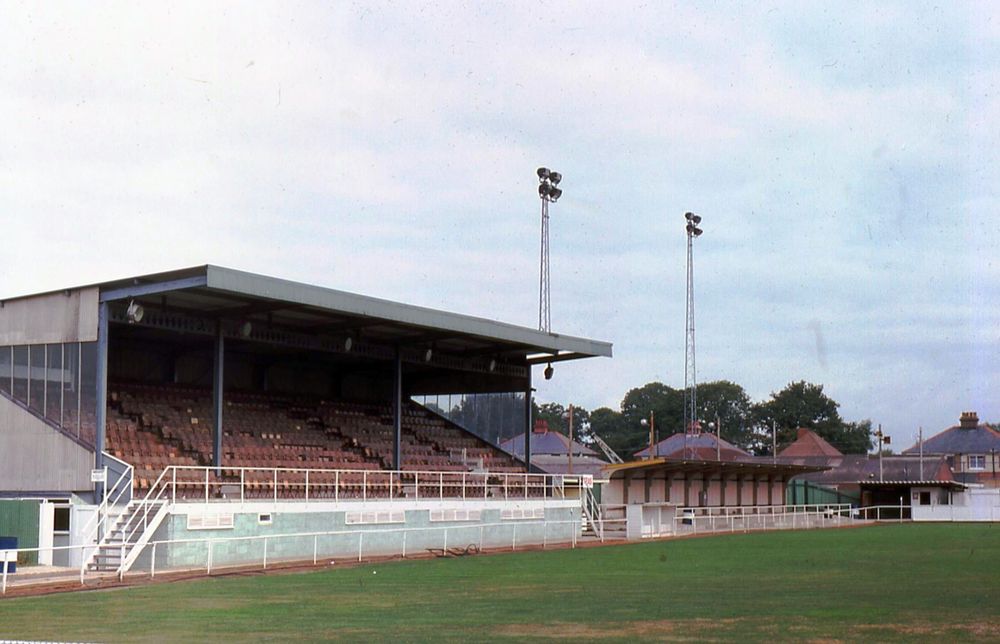
Jubilee Park
Waterlooville spent 27 years as a Southern League club until, in 1997, their supporters lost their club, their Jubilee Park ground to housing, their manager and the majority of the team they had been backing.
Severe financial problems meant that an often talked-about merger with fierce rivals Havant Town finally became a reality.
But surely it wouldn`t happen would it?
Over 70 years of football history wouldn`t disappear, would it?
Non-League football had seen the odd merger in the past, most notably, just five years earlier, Dagenham had joined forces with Redbridge Forest who themselves had swallowed up Ilford, Leytonstone and Walthamstow Avenue in becoming Redbridge Forest.
I have always had a soft spot for Waterlooville FC as it was the first away trip with Kettering Town that my mother would allow me to go on for an FA Cup First Round tie in 1968/69 as a 14-year-old!
I can vividly remember Jubilee Park and quite a bit about the game too.
The hosts were an unknown quantity as they were playing in the Hampshire League and the Poppies were a well-established Southern League Premier Division club with a good tradition in the FA Cup.
Most supporters were hoping that if they had to travel to Portsmouth for a First Round tie after beating Atherstone Town 2-0 at Rockingham Road in the Fourth Qualifying Round, then it would be to play the famous Pompey, not Waterlooville!
It was only the Ville`s third season in the FA Cup and to reach the First Round, had done exceptionally well to beat Basingstoke Town, Newport IoW, Salisbury City and then South Western League outfit Falmouth Town.
However, it took three attempts to beat the Cornishmen, having shared a 2-2 draw in the original tie at Falmouth, then drew 1-1 at Jubilee Park, meaning the Ville had to travel back to the West Country for a second time for a second replay which was held at neutral Exeter City`s St James`s Park, in which Waterlooville triumphed 2-1.
It looked like there was a decent crowd in the ground when my bus drew up outside Jubilee Park and there was a good sprinkling of Kettering supporters as usual.
However, fears of the Poppies becoming `giantkilled` themselves reared up when they took the lead with what must be said was a lovely header past former Northampton Town keeper Bryan Harvey.
But those fears were eased when top scorer Ken Gully fired an equaliser shortly afterwards.
And then seconds before half-time, Poppies winger Barry Daldy scored a goal that almost made the 300-mile round trip worthwhile in itself!
Taking hold of the ball inside his own area, he seemed to beat man after man before rounding the keeper and unleashing a shot that almost burst the empty net!
The second half saw the home side have the majority of the play, but Kettering`s experienced defence always looked secure and the scoreline remained 2-1.
The Poppies cup run this particular season was memorable in that, after the win at Waterlooville and a 5-0 hammering of league rivals Dartford in the next round, it produced one of the most exciting ties seen at Rockingham Road before or since when, after holding Third Division Bristol Rovers to a 1-1 draw at Eastville, Kettering lost the replay after taking the lead, Harry Walden missing a penalty and then player-manager Steve Gammon netting an own goal to leave `lucky` Rovers 2-1 winners in front of a packed house!
As for Waterlooville, it was three seasons later when, in 1971/72, they turned `professional` and joined the Southern League Division One South.
Momentum is a vital thing to possess, and Ville had that going into their first season at the higher level and, although the division only had 16 teams, they won the title at the first attempt, albeit only on goal average from Ramsgate Athletic.
Ironically, Kettering Town won Division One North that season as well under new boss Ron Atkinson, so the clubs would meet again in 1972/73, this time as league opponents!
However, it would be for only one season as Ville really struggled to come to terms with the `big guns` in the Southern Premier Division.
It seemed almost inconceivable a few years back that `little` Waterlooville would be competing with the likes of Yeovil Town, Chelmsford City, Worcester City, Bedford Town and Weymouth – all big guns as far as non-League football was concerned at the time.
They certainly couldn`t compete financially, unlike the team who came up with them, Kettering, who stormed to the Premier Division title under Atkinson with an expensively assembled side, including an £8,000 striker in Roy Clayton.
From 1973/74 to 1981/82, Waterlooville played in Division One South – later the Southern Division – but they almost broke into the still relatively new Alliance Premier League in 1980/81.
The side went an incredible 31 matches without defeat that season before falling away in the end to finish in fifth spot behind champions Dartford.
When the Southern League was reorganised in 1982, Ville were placed in the Premier Division but were relegated back to the Southern Division in 1982/83, despite also reaching the final of the Southern League Cup, losing to Alvechurch.
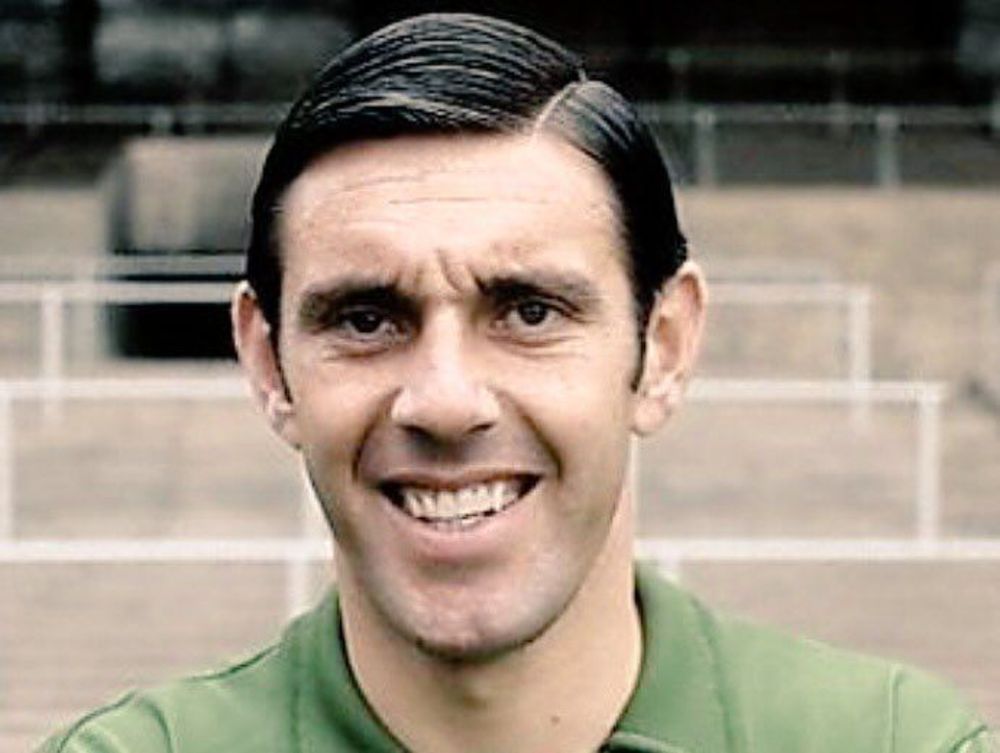
John Milkins
The following season, under the stewardship of manager John Milkins, the former Portsmouth goalkeeping favourite, who made over 350 appearances for Pompey between 1961 and 1974 and then, after a four-year spell with Oxford United, joined Ville as a player initially until taking the helm in 1982, they again reached the First Round of the FA Cup, holding Northampton Town to two 1–1 draws, before losing a second replay 2–0.
It was the only time that Ville played against a Football League side.
Under Ernie Bradwell, Waterlooville lifted the Southern League Cup in 1986/87.
The Hampshire side won both legs of the two-legged final against Midland Division side Hednesford Town.
The following season saw Bradwell lead Waterlooville to second place in the South Division behind Dover Athletic and they returned to the Southern Premier Division.
But they struggled at that level, only avoiding the drop in 1990/91 due to the loss of two or three clubs for a variety of reasons, and 1992/93 witnessed an 11th place finish in the Premier, their highest ever placing.
They did go down under player-manager Billy Gilbert in 1993/94, but again proved to be a good side at the level below, finishing fourth and third in the next two seasons before their final two campaigns in 1996/97 and 1997/98 saw 15th and 10th placed finishes respectively.
Over the years Waterlooville were members of the Southern League, they had some excellent players, several of whom have featured in various articles on this website in recent months, such as Micky Mellows, Mick Catlin and Paul Moody.
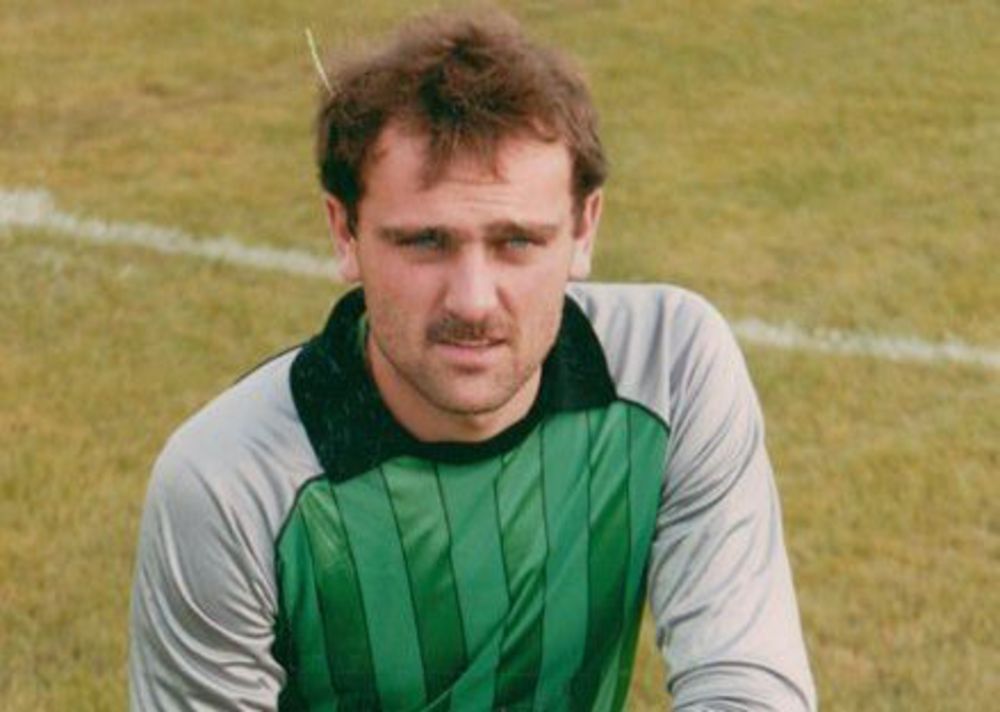
Neil Hards
But there were stalwarts like goalkeeper Neil Hards, who played 6 times in the Football League for Plymouth Argyle before embarking on a long and successful career in the non-League game.
He turned out for Gloucester City, Cheltenham Town and then Ville before making the switch to rivals Havant Town in 1994.
He later played for Newport IoW, Newport AFC and managed the likes of Winchester City, who he led to the FA Vase Final in 2004 and Cirencester Town.
Calvin Hore was one of Ville`s longest-serving players.
He joined the club in 1980 as a 17-year-old before being snapped up by neighbouring Portsmouth the following year.
He played in Pompey`s youth and reserve sides but returned to Jubilee Park in 1982 and was a regular first team member until the club played its last match in May 1998, making around 800 appearances. He was also club captain for most of the 1990s and also represented the FA XI.
He had a short stay with the merged clubs but went on to play for Sidlesham and went into management with former Waterlooville team-mate Terry Arnold at Moneyfields.
Forward Kenny Todd was a north-east born attacker who started his career with Wolverhampton Wanderers.
He played 5 times in the Wolves first-team before Port Vale broke their club record to purchase him for a £37,000 fee in August 1978.
He made 44 appearances and scored 9 goals for Vale before being sold to Portsmouth for £20,000 in October 1979.
However, he had a fall out with Pompey boss Frank Burrows and played just 3 times before dropping into non-League football with Fareham Town in 1980.
But then it was on to Waterlooville where he enjoyed a good spell and broke a record with 50 goals in one season.
He then became player-manager at Havant Town before being asked to take over as youth team manager at Portsmouth.
Billy Cole was another stalwart of the club in two spells.
He came through the club`s ranks and was named as player of the year on more than one occasion.
He had a spell away at neighbouring Fareham Town before re-joining Ville and making a total of over 300 appearances.
Ricky Burnside was a strong and aggressive forward who had a tragic end to his life when he committed suicide in 2002.
He was originally on the books of Brighton & Hove Albion and Bournemouth before spending time with Birkirkara FC in Malta after a short first spell with Waterlooville.
He re-signed for Ville upon his return to England and then joined Isthmian Leaguers Bognor Regis Town before returning for a third spell at Jubilee Park.
He later played for Fareham Town.
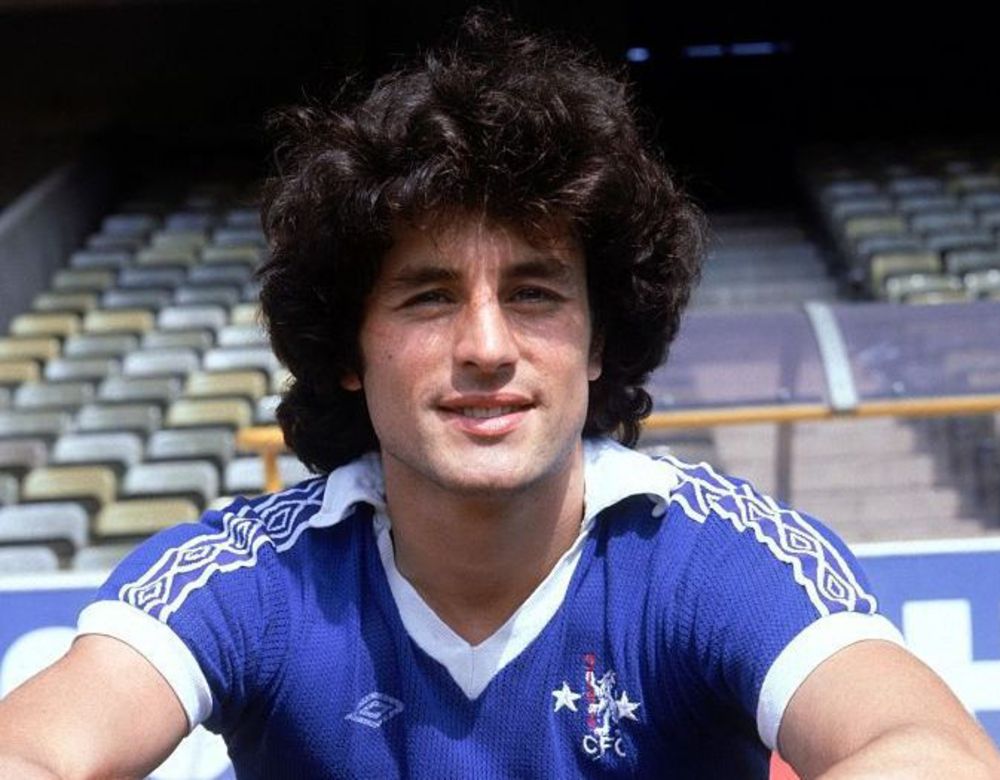
Garry Stanley
Others to have worn the white & blue colours include former Chelsea midfielder Garry Stanley.
Stanley made over 100 appearances for the Blues and went on to serve Everton, Swansea City, Portsmouth and Bristol City.
He also played in the United States with Fort Lauderdale Strikers in the North American Soccer League in the late 1970s, playing alongside George Best, German striker Gerd Muller and Peruvian star Teofilo Cubillas, and later with Wichita Wings in the indoor league.
He joined Ville in 1989 and enjoyed a couple of seasons in the Southern League before retiring to work in communications.
Scottish striker Jim Storrie was player-manager at Jubilee Park for a couple of years in the mid-1970s.
After starting his professional career with Airdrieonians in 1958, making 89 appearances and scoring 48 goals, Storrie was signed by Don Revie for Leeds United in 1962 for just £15,000.
This was early in Revie`s rein at Elland Road but Storrie, alongside fellow Scot Bobby Collins, led the wat towards what would be a marvellous period for the Yorkshire side in the late 60s and early 70s.
Storrie made over 150 appearances for Leeds, netting 58 goals before seeing game time reduced due to the emerging talents of Mick Jones etc.
He had a short spell with Aberdeen and then spent two years with Rotherham United and a couple of injury-hit campaigns with Portsmouth.
He played 5 matches on loan to Aldershot in March 1972 and was granted a free transfer by Portsmouth two months later.
He joined St Mirren as player-coach at the end of 1972 before being appointed as player manager at Waterlooville.
Premier League St Johnstone appointed him manager five games from the end of the 1975/76 season until 1978.
His last role in football was on the coaching staff back at his first senior club, Airdrie.
He passed away in November 2014 at the age of 74.
Two of Southampton`s FA Cup Final winning side of 1976 also turned out for Ville later in their careers - Bobby Stokes and Ian Turner.
The Saints caused a major upset when the Second Division side beat Tommy Docherty's Manchester United in May 1976.
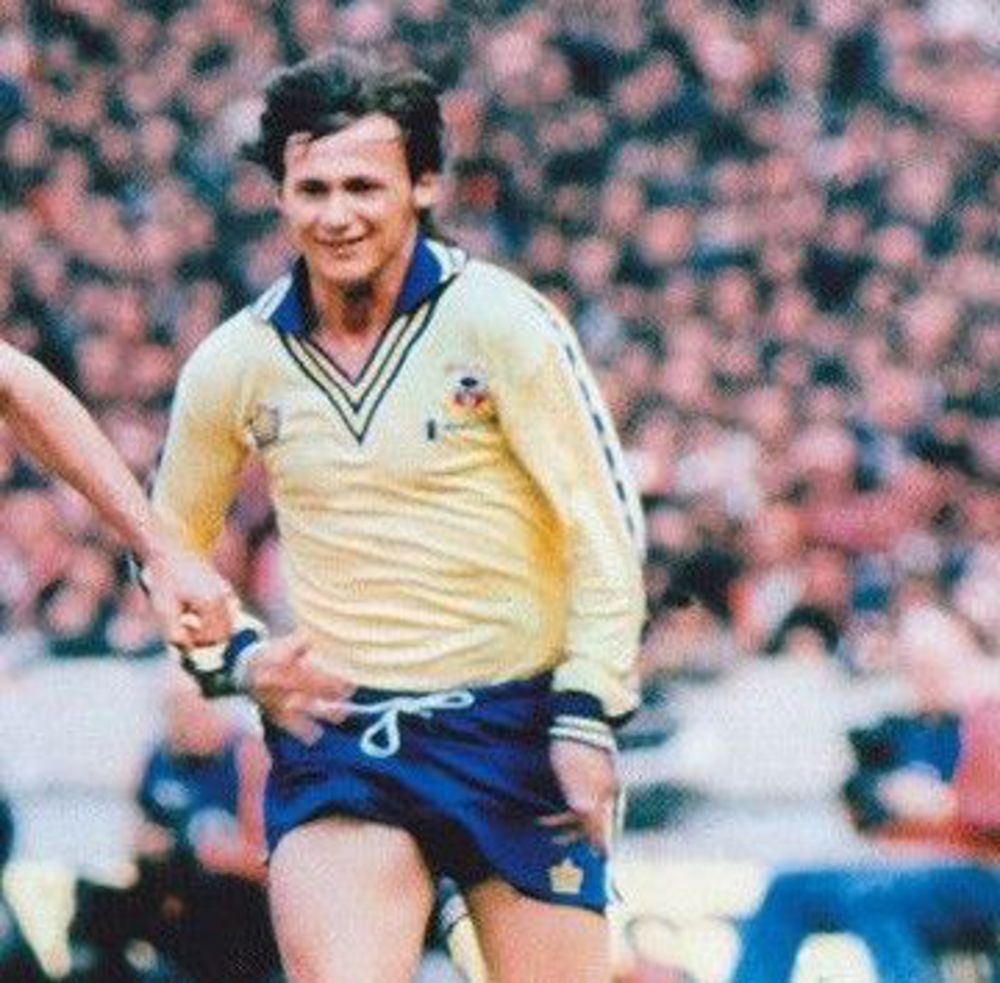
FA Cup hero Bobby Stokes
And it was Stokes who scored the only goal of the game 7 minutes from time, latching on to Jim McCalliog's through ball, Stokes despatched a shot past the diving Alex Stepney in United's goal, earning his side a 1-0 win and writing his name into Southampton folklore.
Stokes made over 200 appearances for the Saints, leaving a year after that cup success to move along the coast to play for Portsmouth for a season.
He then joined the North American Soccer League circus in 1978 by joining Washington Diplomats, where he found himself playing alongside the great Johan Cruyff!
From playing with the top stars like Cruyff and his Dutch international team-mate Wim Jansen, Stokes returned to England in 1980 and joined Waterlooville!
He went on to turn out for Cheltenham Town in the Southern League and then finished his playing days with Chichester City in the Sussex County League.
After retiring, Stokes went into coaching and worked in a number of soccer schools alongside Wembley team-mate Peter Osgood.
He ran a pub near Portsmouth, before working alongside cousin Maria at the Harbour View Cafe at The Hard in Portsmouth.
Bronchial pneumonia sadly caused his death at the age of just 44 in May 1995.
Goalkeeper Turner was another of the Saints` Wembley heroes.
He started out with home-town Middlesbrough-based side South Bank in the Northern League – playing centre-half!
He first went in goal for Huddersfield Town`s reserves and made such an impression that he stayed in that position but moved to Grimsby Town in 1972 without having made a senior appearance for the Terriers.
It was at Blundell Park that Turner first encountered Lawrie McMenemy, who took him to Southampton in 1974.
Apart from playing a major role in helping the Saints to reach and then win the FA Cup in 1976, he played 107 times and also spent the summer of 1978 in the NASL with Fort Lauderdale Strikers before moving to Walsall in 1979, playing 39 times.
After leaving the Saddlers, he embarked on his non-League career, starting at Southern League Witney Town, then Salisbury City, Totton, Road-Sea Southampton and then, in 1985, Waterlooville.
In 1987 he left to take over as manager of Romsey Town and also managed Brockenhurst and Totton in the Wessex League as well as a second stint at Romsey.
He now lives in Stamford and became an engineer in the oil industry.
Other former Ville players include Guy Whittingham, who joined Waterlooville for the start of the 1987/88 season where, after two games for the reserves, he was quickly promoted to the first team and became the club's top goalscorer that season.
One of his goals came in the First Round of the FA Cup against Aylesbury United.
He then spent a season at Yeovil Town before, in the summer of 1989, he was signed by Portsmouth, where he then spent the majority of his career, scoring 99 times in 173 league appearances, and Sheffield Wednesday, for whom he appeared 120 times and scored 22 times.
He later managed Portsmouth as well as non-League sides Newport IoW and AFC Newbury.
In 1971, former Birmingham City and Shrewsbury Town full-back Pat Wright was appointed player-manager of Waterlooville, leading them to the Division One South title in his first season in charge.
He then joined Portsmouth, initially as reserve team coach and later as chief coach and went on to coach all over the world, including spells with the Saudi Arabia and United Arab Emirates national football teams, and scouted both in England and abroad.
He set up his own coaching company which has operated since 1980 and was on the planning committee of the Football Association's School of Excellence.
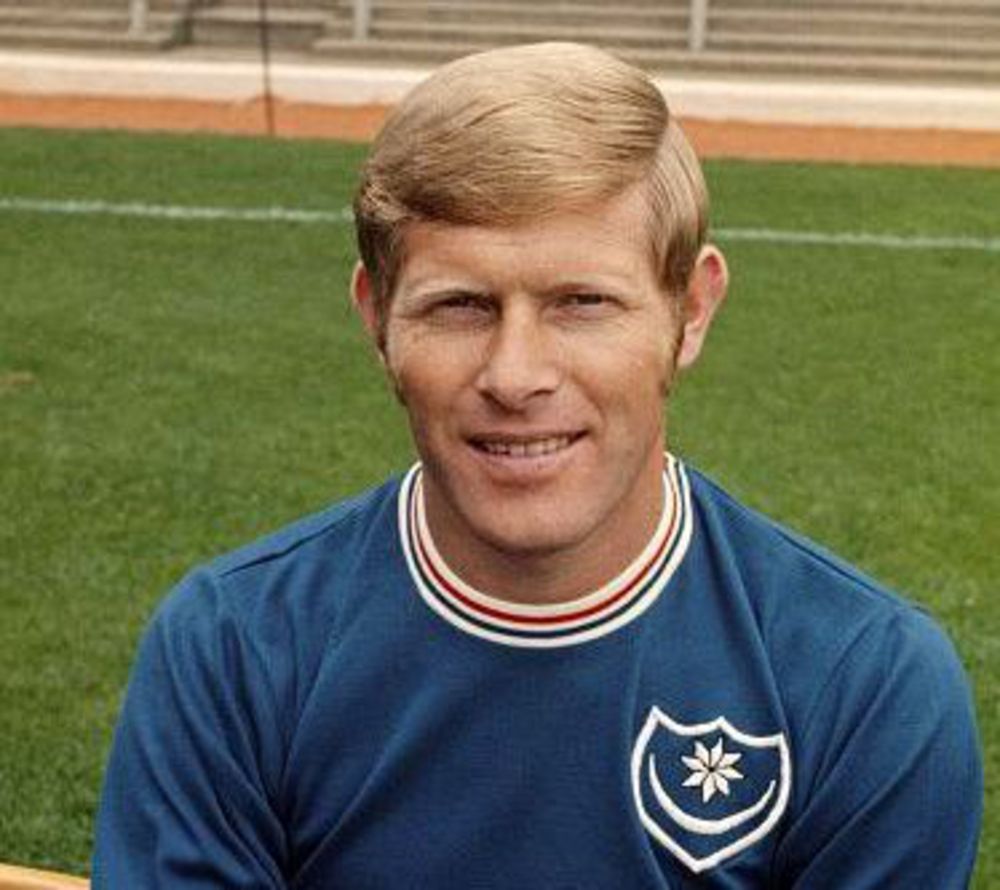
Ray Pointer
A former international to wear Waterlooville colours was centre-forward Ray Pointer.
Pointer won three England caps whilst at Burnley, scoring 2 goals for his country.
He won his first cap in September 1961 in a 4–1 win against Luxembourg and scored in that match. His other England goal was against Portugal.
Pointer, who was born in Cramlington in Northumberland and had a long and successful playing career, totalling over 400 League appearances whilst playing for Burnley, Bury, Coventry City and Portsmouth.
He started his career with Burnley in 1957 and was part of their 1959/60 First Division title-winning side.
He went on to score 132 goals in 270 games for the club and is still the Clarets’ second highest goalscorer of all-time.
After leaving Portsmouth in 1972, he joined Waterlooville and spent two seasons at Jubilee Park before returning to Turf Moor as youth-team manager in 1978.

Most clubs are looking for volunteers. Find out more on the button below:
www.PitchingInVolunteers.co.ukAll the news and results in one place.
REGISTER